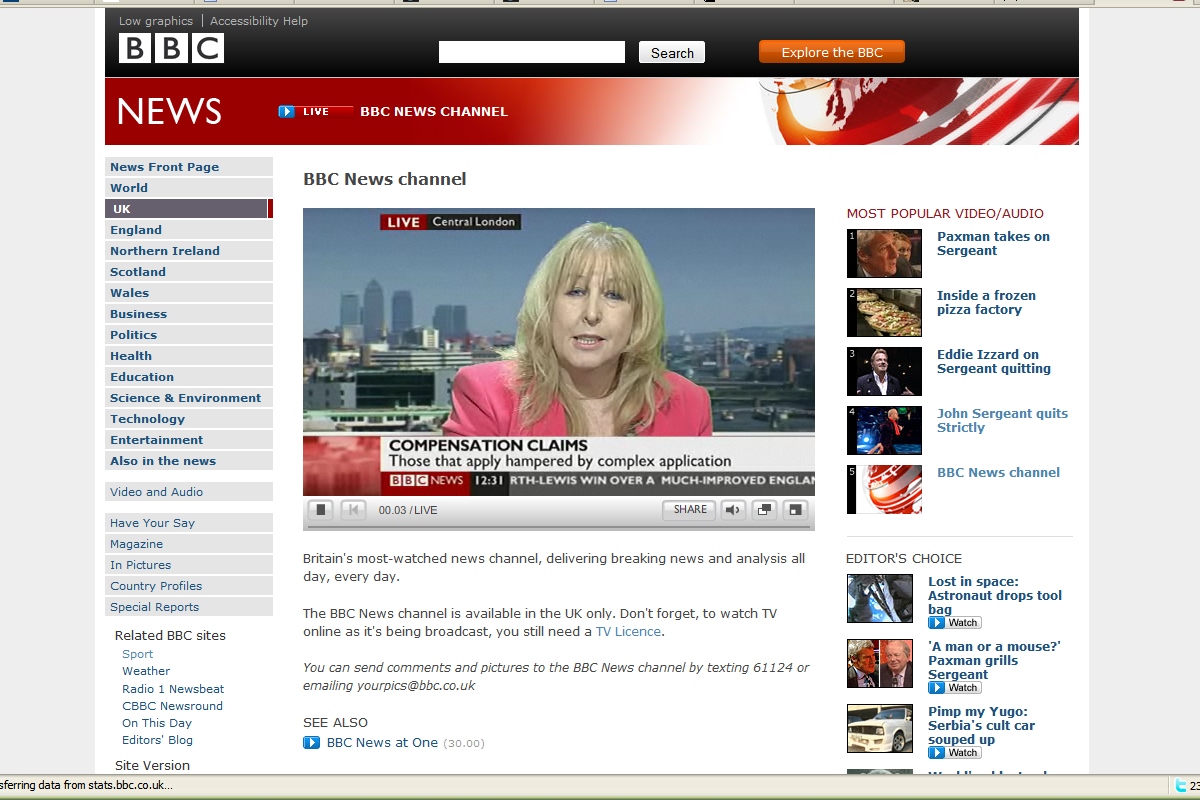BBC to live stream main TV channels
BBC 1 and BBC 2 will be available for live viewing online as part of a 12-month trial, but questions remain over whether Auntie can actually enforce the TV licence for online viewers.

The BBC has announced plans to broadcast its two main TV channels online as live web-based video streams, following successful trials involving its digital channels.
The Beeb already offers live streaming access to BBC News, BBC Three, BBC 4, two children's channels and the vast majority of the BBC's local and national radio stations. Access to these live streams is restricted to UK-based IP addresses.
"From 27 November licence fee payers will be able to watch BBC programmes, live, wherever they are in the UK on their computers, mobile phones and other portable devices," said Jana Bennett, Director of BBC Vision.
However, it remains unclear exactly how TV Licensing can maintain enforcement of the TV licence which provides the BBC with the vast majority of its funding and is the cornerstone of the Royal Charter that ensures the BBC's existence and independence. TV Licensing is the body responsible for collecting the licence fee and enforcing the legal requirement to hold a TV licence in order to watch TV broadcasts in the UK.
The TV Licensing web site states: "If you use the BBC iPlayer to watch TV programmes at the same time as they are being shown on TV (live) then you will need to be covered by a valid TV Licence. If you use the BBC iPlayer to watch BBC programmes after they have been broadcast - either to download, or via streaming 'on demand' you will not need a TV Licence."
While viewers of the live streams will need a licence, both the BBC and TV Licensing are vague on exactly how licence fee evasion can be detected and proven, given that the current detection process if geared towards identifying active televisions in unlicensed houses, rather than what computers are being used for.
"The licence fee was easy to police when everyone was just watching one big television in the corner of the room but people are watching shows in all kinds of ways. How are they going to police what people are doing?" Philip Davies MP, who sits on the culture, media and sport select committee, told the Daily Mail.
Sign up today and you will receive a free copy of our Future Focus 2025 report - the leading guidance on AI, cybersecurity and other IT challenges as per 700+ senior executives
'This is the death knell for the licence fee," he added.
The future of the TV licence is clearly in doubt, as the BBC Trust has announced a review of how the licence fee is collected, in light of the changing technology used in accessing and delivering broadcast content to the public.
"The BBC has a duty to be efficient in collecting the licence fee and to keep evasion rates as low as possible so that those people who pay are not disadvantaged by those who do not," said Sir Michael Lyons, chairman of the BBC Trust.

